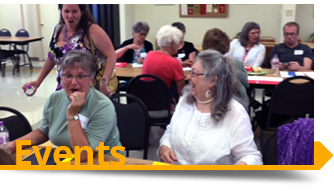AP Poll: Ecology, religion a natural mix for some Americans
Ecology, religion a natural mix for some Americans CONNIE CASS and EMILY SWANSON
“The Bible has always been clear about the call to care for the world that God has created and to love our neighbors,” said Rachel Lamb, 26, a national organizer for Young Evangelicals for Climate Action and the daughter of a Baptist minister. She notes that the poor will suffer most from the consequences of a warming climate, making it particularly compelling to Christians.
“When you see something like climate change, we can’t ignore it,” Lamb said. “We have to act.”
As an international conference in Paris enters its second week in hopes of agreement on a plan to curtail global warming, Lamb and others like her see that issue as more than a secular one for government leaders.
The AP-NORC and Yale analysis of Americans’ environmental attitudes identified nine distinct segments of the U.S. population, each with a different relationship with the environment. Members of one group, called the “Religious Greens,” are among those most likely to attend church at least once a week. A majority of this group trusts their religious beliefs over scientific explanations when the two conflict.
At the same time, 9 in 10 of them believe global warming is happening, and 7 in 10 believe the environmental crisis is more serious than most people think.
They are among the most likely of the nine groups to support environmentally friendly policies, too.
Eight in 10 favor regulating carbon dioxide emissions, compared with only 6 in 10 of all Americans. Nearly 9 in 10 of the Religious Greens favor funding research into renewable energy sources, compared with less than 7 in 10 of all Americans.
Despite their views, just 2 in 10 of this highly spiritual group call themselves environmentalists.
There is a long history of people of faith serving as stewards of God’s creation, and Pope Francis released an encyclical on the environment this year. But the environmental movement in the U.S. mostly has a secular image.
Indeed, a majority of the two groups in the study who are most environmentally minded — the “Liberal Greens” and the “Outdoor Greens” — say they’re only slightly or not at all religious. Few among these two groups trust religious beliefs over scientific explanations.
Overall, the AP-NORC polling shows that 63 percent of the least religious Americans think global warming is real, while only 43 percent of those who describe themselves as “very religious” believe it’s happening.
That may reflect the tension between religion and environmentalism in U.S. politics.
The 2016 Republican presidential candidates most aggressively seeking Christian votes are dismissive of climate change.
Sen. Ted Cruz, R-Texas, has accused government scientists of “cooking the books” to falsely portray a warming planet.
Former Arkansas Gov. Mike Huckabee, a Southern Baptist pastor before he got into politics, questioned climate change science and mocked Democratic President Barack Obama for saying there’s no greater threat to future generations.
Retired neurosurgeon Ben Carson says he doesn’t believe in global warming or evolution.
Juana Torres, an environmentalist and a Catholic Church volunteer in Los Angeles, said she hears from Catholics who question whether climate change is really a crisis or whether the church should be involved.
“What I hear the most is we’re making this about politics, that this is a political issue not a moral issue,” Torres said. “People think we are making this about whether you’re from the right or the left.
“My response is this is not a political issue,” she said. “This is a moral issue.”
Demographically, the Religious Greens tend to be young — a majority of them are under age 45 — and 6 in 10 of them are female, more than in any other group. Seventeen percent are black and 22 percent are Hispanic, making them among the most diverse groups identified in the analysis.
Torres, who’s worked for the Sierra Club for a decade and volunteers with a Los Angeles Diocese ecology program, says the young adults who are the focus of her volunteer activities don’t need convincing.
“They’re well aware that we are going to be the generation that’s going to be greatly affected by climate change,” she said. “We’re going to see it.”
___
The AP-NORC Center and Yale University survey of 1,576 adults was conducted online Nov. 20-Dec. 1, 2014, using a sample drawn from GfK’s probability-based KnowledgePanel, which is designed to be representative of the U.S. population. The margin of sampling error for all respondents is plus or minus 2.9 percentage points.
Funding for the survey comes from the Yale School of Forestry and Environmental Science.
Respondents were first selected randomly using phone or mail survey methods and later interviewed online. People selected for KnowledgePanel who didn’t otherwise have access to the Internet were provided access at no cost to them.
___
Online:



